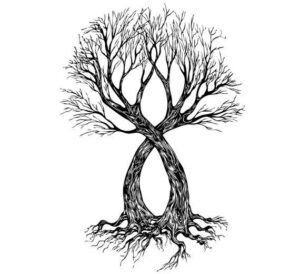Parshas Korach
More Powerful than…!
“…and Moshe said to Hashem, “Do not turn to their gift offering!’” (16:15)
Chizkiyahu, King of Yehuda, was an extremely righteous king who disseminated Torah among the Jewish nation. He became deathly ill and the prophet, Yeshayahu son of Amotz, came to him and said, ‘So says Hashem: Prepare your household, for you shall die …!’” Yeshayahu the prophet was informing King Chizkiyahu that a death sentence was already decreed upon him. King Chizkiyahu replied, “Son of Amotz, finish your prophecy and leave! I have a tradition handed down from my ancestors that even if one has a sharp sword laying on his throat, he should not hold back from requesting Hashem’s mercy!” Whereupon, Chizkiyahu turned his face towards the wall and whole-heartedly prayed to Hashem. Immediately afterwards, Hashem reappeared to Yeshayahu the prophet and told him: “Return to Chizkiyahu, … and tell him: ‘So says Hashem, G-d of your father David: I have heard your prayer and seen your tears; I shall heal you! On the third day ascend to the House of Hashem and I shall add fifteen years to your life.’” (Melachim II (Chapter 20)
Korach was very wise and very rich. He experienced prophecy, futuristically seeing that his descendants would be very prestigious. He was a member of the Leviite family of Kehas, the family who was entrusted to carry the holy vessels of the Mishkan. Nonetheless, unfortunately, all of that was not enough for him. He became jealous of Moshe’s appointments of Aharon as Kohein Gadol and Elitzafon as head of the family of Kehas. Hashem had told Moshe to make those appointments. However, Korach’s jealously led him to claim that Moshe had made the appointments on his own. To bolster his claim, Korach declared that not only did Moshe make-up the appointments on his own, he even made-up some of the mitzvos that he taught them. Korach claimed that the mitzvah of tzitzis made no sense. On a garment of any material, one string of techailes (wool dyed a bluish-purplish color) together with the other strings, would suffice to fulfill the mitzvah of tzitzis. Then, why should a garment made totally from techailes need one extra string of tchailes to be acceptable? Also, why would a room that has a sefer Torah need a mezuzah, in addition? The Torah itself contains the parsha of the mezuzah as well hundreds more mitzvos.
Korach’s pronouncements were very dangerous. He attacked the fundamental belief that the Torah is the word of Hashem. If one would suggest that Korach could have succeeded had he davened to Hashem for success, you would think that person was crazy. How could Hashem accept such a prayer which would undermine Hashem’s own Torah?
Yet, we see something very fascinating. Moshe attempted to make peace by going to the homes of Dassan and Aviram, the other two leaders of the rebellion. Dassan and Aviram rebuffed Moshe and responded with brazenness. Moshe then beseeched Hashem not to accept the korban of ketores that they were going to bring on the following day.
Rabbi Simcha Zissel Ziv Broida, the Alter of Kelm, says we see from this, the tremendous power of prayer. Moshe had to beseech Hashem not to accept their korbanos, representing their tefillos. Had their tefillos been accepted, they would have succeeded in denying that Moshe was teaching Hashem’s Torah. If the Torah was not from Hashem, then they would have succeeded in denying the validity of the Torah itself. The entire Torah would have been nullified! Moshe was concerned lest their prayers be accepted. Hashem set up the World in such a way that sincere and totally heartfelt prayer is very powerful and has a good chance to be answered, even if the request runs contrary to Hashem’s will. Moshe knew that principle. Therefore, he had to pray to Hashem to counter their prayer.
We see a similar idea in the Talmud (Yoma 53A). When the Kohain Gadol exited the Holy of Holies on Yom Kippur, he prayed for the needs of the Jewish People. One of the prayers was that Hashem should not listen to the prayers of the travelers who had come to Yerushalayim. The travelers were returning home. They prayed to Hashem that it should not rain, which would cause the roads to become muddy, making the travel home very difficult. Rain, however, is important to everyone else, other than the travelers. Rain is needed for drinking water and to help crops grow. Other Jews prayed for rain. Why was it necessary for the Kohain Gadol to add this to his prayers? The traveler’s prayers were totally sincere and from the heart. They understood that only Hashem could help them. Those prayers were so powerful, that the Kohain Gadol’s prayers were needed to counteract them. (based on a dvar torah quoted in Yalkut Lekach Tov.
When we daven to Hashem with a complete heart, and with the realization that only Hashem can help us, our tefillos are very powerful. Even if we do not see the results that we hope for,
due to our powerful tefillos Hashem will help us in some way either now or in the future.


















